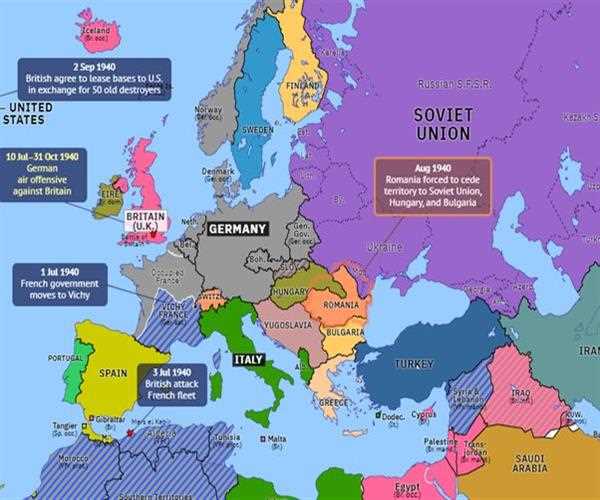There are a number of reasons why Germany and Britain did not make peace after the fall of France in 1940.

- Hitler's ambitions: Adolf Hitler was a ruthless dictator who was determined to conquer Europe. He had no intention of making peace with Britain, as he saw it as a major obstacle to his plans.
- Churchill's determination: Winston Churchill was the British Prime Minister at the time, and he was determined to fight on. He believed that Britain could not afford to make peace with Germany, as it would mean surrendering to tyranny.
- Public opinion: The British people were also determined to fight on. They had seen the horrors of war firsthand, and they were not prepared to surrender to Germany.
- The British Empire: Britain was still a major imperial power in 1940, and it had a number of colonies and dominions around the world. These countries were also determined to fight on, and they provided Britain with valuable support.
In addition to these factors, there were also a number of practical reasons why Germany and Britain did not make peace. For example, Britain still had a powerful navy, and it was able to blockade Germany, preventing it from getting the supplies it needed.
Ultimately, the decision not to make peace was a strategic one. Both sides believed that they could win the war, and they were not prepared to give up. The decision to fight on proved to be the right one, as Britain eventually emerged victorious.
Here are some additional details about the reasons why Germany and Britain did not make peace:
- Hitler's ambitions: Hitler had been planning for war since the 1920s. He believed that Germany was entitled to Lebensraum, or living space, in Eastern Europe. He also believed that the German people were a superior race, and he wanted to conquer other countries in order to spread German dominance.
- Churchill's determination: Churchill was a fiery and determined leader. He was not afraid to stand up to Hitler, and he was determined to fight on no matter what the cost. He famously said, "We shall fight on the beaches, we shall fight on the landing grounds, we shall fight in the fields and in the streets, we shall fight in the hills; we shall never surrender."
- Public opinion: The British people were also determined to fight on. They had seen the horrors of war firsthand, and they were not prepared to surrender to Germany. A poll conducted in June 1940 found that 84% of Britons were in favor of continuing the war.
- The British Empire: The British Empire was a major source of strength for Britain during World War II. The colonies and dominions provided Britain with troops, supplies, and financial support. For example, Canada provided Britain with over 1 million troops during the war.
The decision not to make peace was a difficult one, but it was ultimately the right one. Britain emerged victorious from World War II, and it helped to preserve democracy and freedom in Europe.